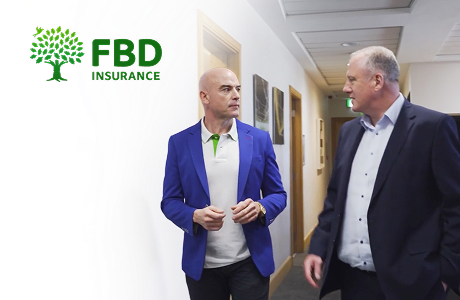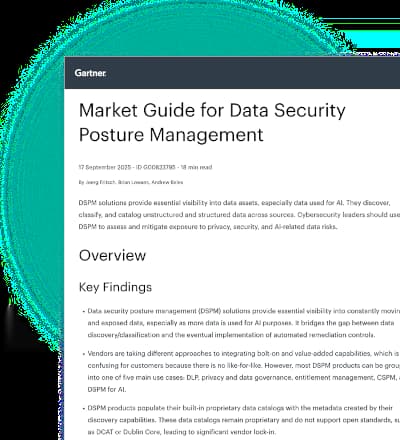What is Data Security Compliance? Explained and Explored
Data security compliance is the facet of data compliance pertaining specifically to securing data and protecting it from exfiltration and breaches.

Data Security Compliance Explained
Depending on where they are registered and do business, organizations are expected to follow applicable standards and regulations for properly handling data. This is called data compliance.
Specialized industries such as healthcare and finance often have their own data security regulations, and organizations may fall under the governance of multiple regulatory schemes.
Maintaining data security compliance requires implementing proactive processes as well as documenting them to show proof of compliance to regulatory authorities. Some of the activities that make up a comprehensive data security compliance strategy include:
- Classifying data according to levels of sensitivity
- Encrypting data determined to be sensitive
- Controlling user access to data
- Backing up data for retrieval in case of loss
- Documenting compliance activities
- Auditing and updating processes to reflect changing standards and requirements
Classify and Protect Sensitive Data with AI
Why is Data Security Compliance Important?
Data security standards and regulations are designed to protect organizations along with their customers and other stakeholders from cyber threats and data loss. Data security compliance is therefore essential to provide the foundation of a strong data security strategy.
Organizations that emphasize compliance tend to not only be more secure but are also better situated to keep up with the shifting threat landscape and easily retrieve data when needed.
Preventing data breaches is critical to safeguard an organization’s reputation and avoid disruptions that can bring work to a halt and incur extra costs. Even if no breach occurs, failure to remain compliant can incur fines, cause work stoppages or degrade customer confidence.
While maintaining strict compliance does require a significant investment of time and money, it proves in the long run to be more efficient and cost-effective than pursuing compliance sloppily or not at all.
Data Security Compliance vs. Data Compliance and Data Privacy Compliance
What makes data security compliance different from general data compliance?
Data compliance covers a wide range of standards and practices falling under designations such as data privacy, data sovereignty and data transparency. These overlap significantly with data security but include concerns – such as obtaining customers’ consent to use their personal information and clearly communicating to them how their data is being used – that may not directly impact security.
When you draw up a compliance strategy for your organization, you should cover all aspects of data compliance but can usefully focus on data security compliance as a specialized category.
Data privacy compliance is a particularly important regulatory concern, and many of the best practices that you use for data security compliance can be extended to address data privacy. Personally Identifiable Information (PII) from your customers should be treated as sensitive data, with access restricted to only authorized users. Although data privacy and data security are different areas, effective security solutions should help you to stay compliant in both.
Data Protection Regulations and Standards
As noted above, many of the major regulations governing data security practices are specific to certain industries. Below is a partial list of important regulations and standards that may be integral to your compliance practices.
The General Data Protection Regulation (GDPR): EU and EEA member states are bound by this regulation governing the collection and use of personal data, which also serves as a model for many privacy laws emerging worldwide.
HIPAA
The Health Insurance Portability and Accountability Act (HIPAA): Healthcare records in the United States are governed by HIPAA, which can now be more effectively enforced via the Health Information Technology for Economic Clinical Health (HITECH) Act of 2009.
PCI DSS
The Payment Card Industry Data Security Standard (PCI DSS): This standard was developed by leading credit card companies and is intended to ensure the safe and secure transfer of credit card data and to prevent fraud.
The NIS2 Directive: This amends the NIS1, which applies cybersecurity rules to all European Union member nations. Compared with the original NIS1 Directive of 2016, NIS2 expands the scope of organizations falling under its regulatory authority, adds more stringent requirements including mandatory incident reporting, and adds penalties to make it easier to enforce compliance.
Compliance Doesn’t Equate to Security
Organizations that devote the necessary resources to data security compliance will do more than just stay out of trouble with regulatory authorities; they will also do a better job keeping up to speed with the shifting threat landscape.
However, it is important to keep in mind that compliance requirements represent the minimum that you should be doing to promote security, not the maximum. Compliance won’t automatically protect you from a data breach. Always strive to go beyond compliance to maintain a strong data security posture by relying on best practices and industry-leading security solutions.
How Forcepoint Supports Data Security Compliance
Forcepoint offers integrated solutions that make compliance quick to implement and painless to maintain.
Forcepoint Data Classification
Increase the accuracy and efficiency of your data classification practices with Forcepoint Data Classification. Leverage Machine Learning (ML) and Artificial Intelligence (AI) to more accurately classify unstructured data, all while covering the broadest range of data types in the industry.
Forcepoint Data Loss Prevention (DLP)
Wield the power of the industry’s largest pre-defined policy library to ensure compliance across 80+ countries out-of-the-box. Forcepoint DLP is the industry-leading solution to stop data loss and prevent data breaches before they happen with Risk-Adaptive Protection.
This comprehensive Data-first SASE platform allows you to secure access to the web, cloud and private apps and enjoy continuous visibility on how users interact with data to get a clear picture of compliance across the organization. Forcepoint DLP integrates with Forcepoint ONE Security Service Edge (SSE) channels to enable organizations to easily extend their security policies across all channels in just a few minutes. Learn how to secure data everywhere with Forcepoint.
Related
Gartner® : 2023 Market Guide for Data Loss Prevention
عرض تقرير المحلل2023 Radicati Data Loss Prevention Market Quadrant
عرض تقرير المحللForcepoint Data Classification
قراءة الكتيب









